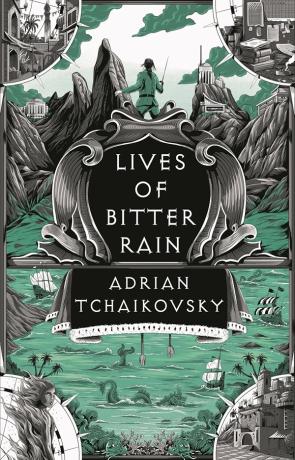Writing Malachi by T C Farren
I live in South Africa, a country known for its capacity for forgiveness and its horrendous murder stats. Every day on the news, women and children go missing and turn up mutilated in forests and rubbish dumps. But this is also the place of Mister Mandela and the Truth and Reconciliation Commission, where apartheid killers cried broken tears with the families of their victims.
Just before writing Malachi, my life led me to a strange district - a middle-class suburb where privileged white people hid from homicide and muggings while licking their own sins behind their high walls. Only the cats took freedom of the streets, lustrous and huge from food richer than the nearby township people could afford to eat. It felt like the only interest in the village was to eavesdrop on retired people’s conversations about gall bladders and hardened arteries at the meat counter in the superette. Now that I think of it, the sight of gleaming meat coupled with those conversation snippets might even have triggered my interest in organ farming and harvesting. And one of the heroines in the novel, a die-hard old crone, may have been inspired by the only surprise in the dreary town, a wild old woman who came ramping over our blind rise once a day, her bright flag flying, her cell phone jammed to her ear.
Either way, by the time I wrote Malachi I was freaked out and fatigued by the idea of separation between people. I was desperately exploring the spiritual concept of one soul, one source when the story landed like an aeroplane on a runway. A beautiful black man appeared in my imagination from miles across the race and gender divide. Malachi arrived enraged by violence, yearning but terrified to join with the human race. To his mind he is both a victim and a perpetrator. He was raised in a slave camp to serve a neocolonialist corporation that raped his African state of its land, water and wildlife. Then he agrees to work for a pharmaceutical company who make billions by milking unwanted humans of their life blood. Wracked by fury, guilt and a loss so terrible he can’t think of it, Malachi spends a shocking week on a broken oil rig, face to face with people who have been stripped down to their element. I hoped Malachi would emerge with clear-cut decisions about justice and oneness but he dived still deeper. I’m still stunned by what this man found out while he was fighting for his life.
People often ask if the novel is based on the Bible’s Book of Malachi. No. I didn’t even know that the Old Testament ends with a Book of Malachi. To the horror of my Catholic genealogy, I steered clear of the Old Testament all my life. After writing Malachi I found out that the first bible’s last chapter warns of horrendous punishment if people didn’t get their act together and honour God. Even after Covid, clearly the consequences of our folly, I don’t go for these terror tactics. I’m more inclined to believe my Malachi who insists that God is never frightening nor very far, but lurks in the heart of even the worst kind of murderer. He has some radical ideas about the afterlife too, just in time for me, while a loved one is dying. I might be shot down for Malachi’s mutiny but nowadays I’m thinking, perhaps there is perfection in everything. Perhaps the sterile white suburb was the perfect fluorescent light to shine into the carcass of separation and sin. Perhaps the deep, sunless rig was the perfect, scary place for Malachi’s reckoning.
You can read the SF Book Review at https://sfbook.com/the-book-of-malachi.htm
News Archives
- August 2024
- July 2023
- April 2023
- February 2023
- September 2022
- March 2022
- February 2022
- July 2021
- June 2021
- April 2021
- March 2021
- January 2021
- October 2020
- September 2020
- June 2020
- March 2020
- May 2019
- January 2019
- November 2018
- January 2016
- September 2015
- August 2015
- July 2015
- June 2015
- May 2015
- April 2015
- March 2015
- January 2015
- October 2014
- June 2014
- April 2014
- March 2014
- February 2014
- January 2014
- December 2013
- November 2013
- October 2013
- September 2013
- June 2013
- May 2013
- April 2013
- March 2013
- January 2013
- December 2012
- November 2012
- August 2012
- July 2012
- June 2012
- May 2012
- April 2012
- March 2012
- February 2012
- January 2012
- December 2011
- November 2011
- October 2011
- September 2011
- August 2011
- July 2011
- June 2011
- May 2011
- April 2011
- March 2011
- February 2011
- January 2011
- December 2010
- November 2010
- October 2010
- September 2010
- August 2010
- July 2010
- June 2010
- May 2010
- April 2010
- March 2010
- February 2010
- January 2010
- December 2009
- November 2009
- October 2009
- September 2009
- August 2009
- July 2009
- June 2009
- May 2009
- April 2009
- March 2009
- February 2009
- January 2009
- December 2008
- November 2008
- October 2008
- September 2008
